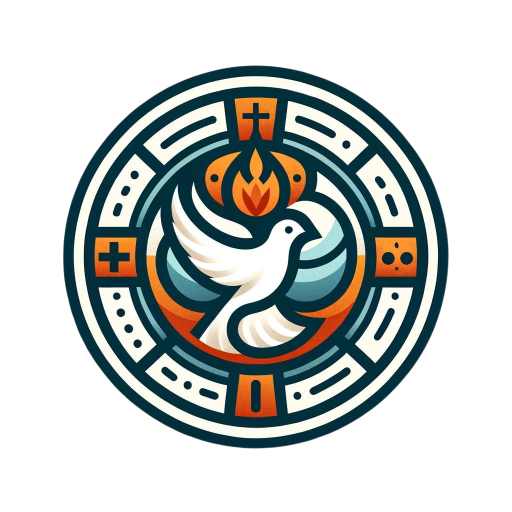“So give your servant a discerning heart to govern your people and to distinguish between right and wrong. For who is able to govern this great people of yours?”
1 Kings 3:9
Have you ever considered the ancient paths of kings and prophets could illuminate today’s journey toward leadership and faith?
The First Book of Kings is not just a historical account. It’s a mirror reflecting the timeless struggle for power, the importance of humility, and the unyielding strength of faith.
In a world where the quest for success often overshadows the value of wisdom, this ancient text reveals how true power lies not in dominion, but in humility and faith.
Let’s explore together how these ancient stories can guide us in navigating the complexities of modern life with grace and conviction.
What is the First Book of Kings about?
The First Book of Kings is an integral part of Hebrew Scripture and the Christian Old Testament. It begins the narrative with the elderly King David selecting Solomon as his successor.
This decision sets the stage for Solomon’s request for wisdom from God — a pivotal moment that emphasizes the theme of divine guidance throughout the book.
Solomon’s reign is marked by prosperity and the construction of the Temple of the Lord, a symbol of Israel’s faith and unity.
However, his later actions, including marrying foreign wives and enforcing forced labor, lead to the division of the kingdom after his death.
This division creates a Northern Kingdom of Israel and a Southern Kingdom of Judah, setting the scene for a saga of kings, prophets, and the people’s relationship with God.
In essence, the book not only chronicles these historical events but also offers lessons on leadership, obedience, and faithfulness.
5 main themes from the 1 Kings
1) The essence of true leadership
True leadership, as illustrated in the First Book of Kings, transcends the mere exercise of power and authority.
Solomon’s early request for wisdom over wealth or long life (1 Kings 3:9) sets a profound precedent for what defines a leader in God’s eyes.
However, it’s not about how many battles are won or how much wealth a leader has accumulated. It’s about serving with understanding and a heart attuned to justice.
Solomon’s request from God wasn’t for personal gain but to effectively lead his people, showcasing that at its core, leadership is a service, not a privilege.
His initial wisdom in governance is symbolized by the just resolution of the case of the two mothers (1 Kings 3:16-28).
Consider him an ideal king who prioritizes justice and the well-being of his subjects over personal enrichment or glory.
Not surprisingly, this biblical lesson resonates deeply with modern believers, emphasizing that effective leadership is rooted in wisdom and compassion, not force or fear.
Whether you’re a team leader, a parent, or in any position of influence, Solomon’s prayer for understanding to discern between good and evil offers a timeless blueprint for leadership.
2) The role of faith in overcoming challenges
The First Book of Kings is rife with stories of faith in the face of daunting challenges.
Elijah’s showdown on Mount Carmel (1 Kings 18) is a prime example, where faith in God’s power was literally put to the test against the prophets of Baal.
As a matter of fact, his story shows the unmatched strength of unwavering faith. It wasn’t Elijah’s own power that called down fire from heaven, but his deep, abiding faith in God.
What does this narrative mean for modern believers?
Well, the story encourages you to reflect on your own Goliaths.
What insurmountable odds are you facing in your life today?
Like Elijah, you’re called to stand firm in your faith, even when the odds seem stacked against you.
It’s a powerful reminder that with faith, no challenge is too great, no adversity too daunting. When your faith is anchored in the Almighty, you can face the fiercest storms with confidence, knowing you are not alone.
3) Wisdom and decision-making
“Give your servant therefore an understanding mind to govern your people, that I may discern between good and evil.”
1 Kings 3:9
Have you ever stood at life’s crossroads, overwhelmed by the choices before you?
Solomon’s story in the First Book of Kings provides a striking meditation on wisdom and decision-making.
Tasked with leading a nation, Solomon asks God for “an understanding heart to judge Your people, that I may discern between good and evil” (1 Kings 3:9).
This request for wisdom, above all else, showcases the profound impact of divine insight on leadership and life’s choices.
In the end, Solomon’s wisdom leads to legendary decisions, like the judgment between two mothers claiming the same child.
This story isn’t just about the wisdom of Solomon — it’s a call to seek God’s guidance in our decisions.
Let’s be honest: in a world flooded with information and choices, Solomon’s reliance on divine wisdom teaches modern believers the value of seeking God’s will above our own understanding.
Just remember that in every decision, big or small, the path to true wisdom begins with a prayer for guidance.
4) Consequences of disobedience
The downfall of Solomon and the division of the kingdom serve as a solemn warning about the consequences of disobedience.
Despite his wisdom, Solomon’s heart turns away from God, led astray by his many foreign wives and their gods (1 Kings 11:4).
As a result of this disobedience, he encounters turmoil and division.
Therefore, this narrative invites reflection on the paths we choose and the consequences of our actions.
This part of the narrative serves as a cautionary tale about the dangers of complacency in faith and obedience.
It underscores that spiritual integrity is not a one-time achievement but a continuous commitment, which, if neglected, can lead to downfall regardless of one’s past accomplishments or divine favor.
So, guess what?
In our own lives, this story urges us to consider our actions and their ripple effects on those around us.
It challenges us to remain steadfast in our commitment to God, knowing that our choices have the power to shape our world for better or worse.
5) The role of prophets
Prophets play a pivotal role in the First Book of Kings, serving as both guides and critics of kings and people alike.
Other than being religious figures, they’re also social commentators who challenge immoral practices and warn against straying from God’s path.
Figures like Elijah stand out for their courage in confronting kings and their dedication to upholding God’s commandments against all odds.
In fact, Elijah, one of the most prominent figures, emerges as a powerful voice against the worship of Baal, challenging Ahab and Jezebel’s apostasy.
His miracles, including the dramatic showdown on Mount Carmel, not only demonstrate God’s supremacy but also call the nation back to faithfulness.
The passing of his mantle to Elisha symbolizes the continuation of prophetic authority and the ongoing struggle of God’s people to adhere to His commandments.
The presence of prophets underscores the theme of accountability:
No one, not even a king, is above divine law or moral scrutiny. Their stories are powerful reminders of the enduring relevance of truth-telling and moral courage in leadership.
Kings’ lessons for today
Now let’s explore how the timeless lessons from the Kings of Israel and Judah can be applied to our lives today.
Here are some key takeaways:
- Seek wisdom above all. Solomon’s request for wisdom over wealth or longevity is a powerful reminder of the value of discernment and understanding in our lives.
- Leadership requires humility. True leadership is about serving others, not asserting power. Solomon’s early days exemplify the strength that comes from humility and a desire to lead wisely.
- Faith is a foundation for overcoming challenges. The stories of Elijah and other faithful figures teach us that unwavering belief in God can guide us through the most daunting of obstacles.
- Disobedience has consequences. The downfall of Solomon and the division of the kingdom serve as stark reminders that straying from God’s commands can lead to personal and communal turmoil.
- Repentance is powerful. Throughout the Kings, moments of repentance and return to God highlight His readiness to forgive and restore those who turn back to Him with a sincere heart.
As you can see, these lessons from the Kings are as relevant today as they were thousands of years ago. They offer guidance for navigating the complexities of modern life with wisdom, humility, and faith.
Conclusion: Finding strength in humility and faith
In the journey through the First Book of Kings, we discover that true strength lies not in the might of armies or the wealth of nations. Instead, it’s in the humility and faith of those who choose to serve God with their whole hearts.
This ancient narrative challenges us to reflect on our own paths, urging us to seek wisdom in our decisions, humility in our leadership, and steadfastness in our faith.
Now, as we navigate the complexities of our own lives, let’s remember the lessons of Solomon, Elijah, and the other figures of this profound book.
Remember, finding strength in humility and faith is not just a lesson from the past — it’s a guiding light for today.
As we close this chapter on the First Book of Kings, let’s carry forward the timeless wisdom it offers, inspired to live with greater purpose, integrity, and devotion.













